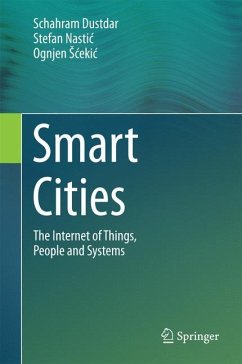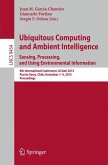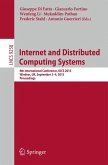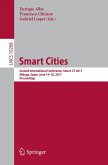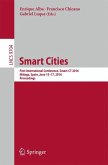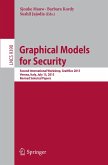This book presents a coherent, novel vision of Smart Cities, built around a value-driven architecture. It describes the limitations of the contemporary notion of the Smart City and argues that the next developmental step must actively include not only the physical infrastructure, but information technology and human infrastructure as well, requiring the intensive integration of technical solutions from the Internet of Things (IoT) and social computing.
The book is divided into five major parts, the first of which provides both a general introduction and a coherent vision that ties together all the components that are required to realize the vision for Smart Cities. Part II then discusses the provisioning and governance of Smart City systems and infrastructures. In turn, Part III addresses the core technologies and technological enablers for managing the social component of the Smart City platform. Both parts combine state-of-the-art research with cutting-edge industrial efforts in the respective fields. Lastly, Part IV details a road map to achieving Cyber-Human Smart Cities. Rounding out the coverage, it discusses the concrete technological advances needed to move beyond contemporary Smart Cities and toward the Smart Cities of the future.
Overall, the book provides an essential overview of the latest developments in the areas of IoT and social computing research, and outlines a research roadmap for a closer integration of the two areas in the context of the Smart City. As such, it offers a valuable resource for researchers and graduate students alike.
The book is divided into five major parts, the first of which provides both a general introduction and a coherent vision that ties together all the components that are required to realize the vision for Smart Cities. Part II then discusses the provisioning and governance of Smart City systems and infrastructures. In turn, Part III addresses the core technologies and technological enablers for managing the social component of the Smart City platform. Both parts combine state-of-the-art research with cutting-edge industrial efforts in the respective fields. Lastly, Part IV details a road map to achieving Cyber-Human Smart Cities. Rounding out the coverage, it discusses the concrete technological advances needed to move beyond contemporary Smart Cities and toward the Smart Cities of the future.
Overall, the book provides an essential overview of the latest developments in the areas of IoT and social computing research, and outlines a research roadmap for a closer integration of the two areas in the context of the Smart City. As such, it offers a valuable resource for researchers and graduate students alike.

